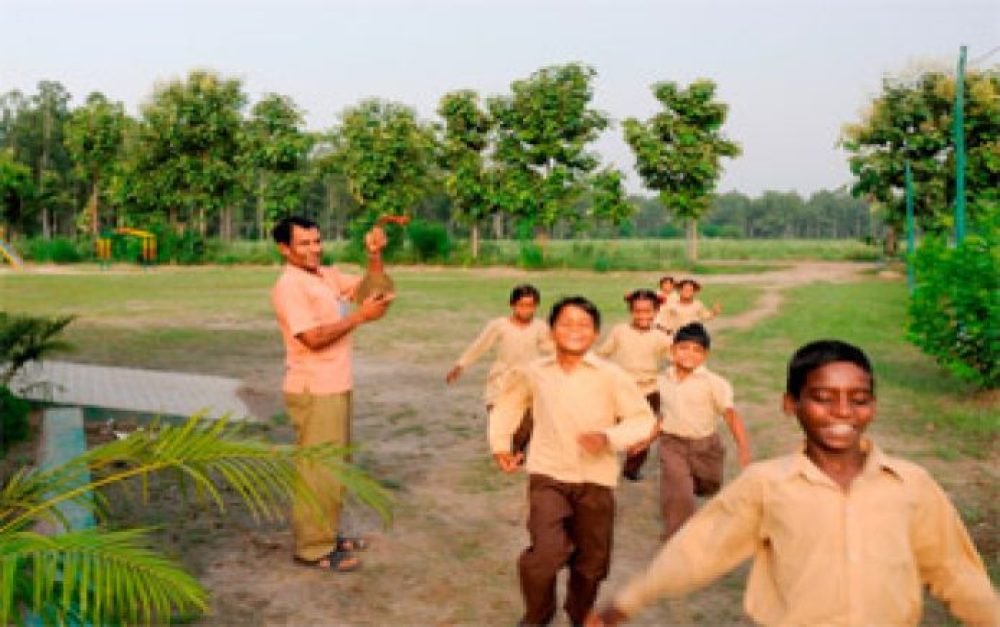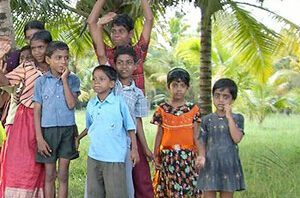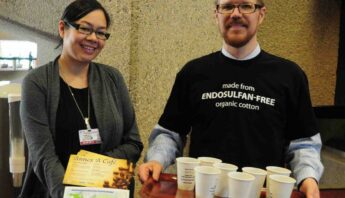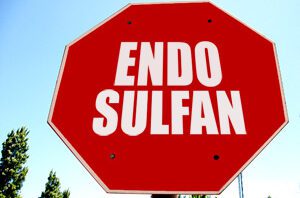India has the unique distinction of being the world's largest user and producer of endosulfan as well as the site of world's most notorious endosulfan poisoning, in the state of Kerala. In 1979, the Plantation Company of Kerala began spraying endosulfan by helicopter over the cashew trees near the town of Padre. The highly toxic, endocrine disrupting insecticide regularly drifted over the village and contaminated its water supply for twenty-plus years.
The result? Cheap cashews. And widespread deformities in Padre's children and livestock, hormonal problems and mental retardation among the villagers, as well as the disappearance of bees and wildlife from the area. Epidemiologists documented that puberty was delayed in boys from the village and that their hormone levels were abnormal. Birth defects of male reproductive system were also more prevalent. Thanks to the efforts of local activists and NGO's like Thanal, a PAN partner based in Kerala, the spraying was eventually stopped, endosulfan was banned across the state, and the state government set up an agency to support the victims.
Meanwhile, the federal government vigorously defends the endosulfan industry. In addition to promoting its use in states other than Kerala, the government continues to produce it in a state-owned factory, and even sends an industry executive to UN negotiations on chemical issues as a member of the official Indian delegation. India of course opposes adding endosulfan to the Stockholm Convention, as this would mean a global phaseout of the antiquated pesticide.
But as I blogged about a few weeks ago, India is increasingly being pressured from within to change its position, with ministers from Kerala state sending letters to their federal counterparts urging a change in policy. The new news is that in the wake of the suggestion by a government official that problems in Padre were not caused by endosulfan, the federal goverment has declared that it will set up an expert panel to consider a ban on endosulfan. The membership of the panel will be key — if it's stacked with representatives from the agriculture and chemicals ministries, then you can be sure that India's position won't be changing. But Jairam Ramesh, the Minister of State for Environment and Forests, has said that the panel will have a member from Kerala, which is good news. And Ramesh's involvement itself bodes well, as he has the reputation of being a reformer and someone who's not afraid to stand up to corporate interests. We'll keep you posted.







